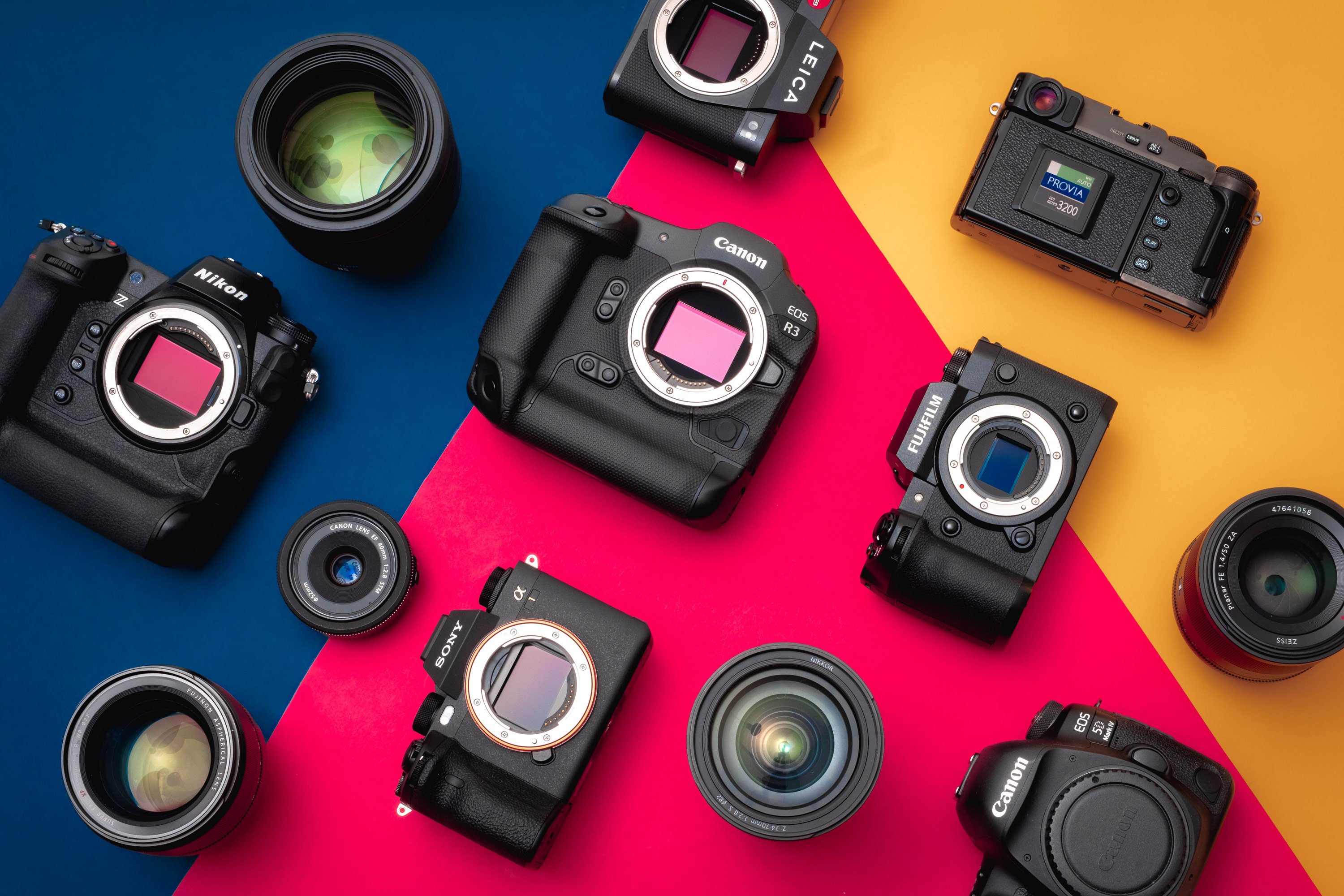
Over 70% of consumers bought or sold used in 2023
Published 27 September 2024 by MPB
Almost three-quarters of consumers (71%) bought or sold used goods in the past year, with 63% of these shoppers making a purchase at least once a month, according to new research by MPB and Retail Economics.
Millennials are helping to drive the trend for second hand, with 84% participating in the used goods market, as are higher-income households, challenging the stereotype that second-hand is favoured only by those with limited budgets.
More than a third (35%) of consumers have increased the frequency of used purchases this year, including 9.4 million adults in the UK. Over half (52%) said that cost-savings were the primary motivating factor, with sustainability concerns ranking second.
UK recommerce market valued at £6.5bn today; expected to nearly double to £12.4bn over next five years, significantly outgrowing traditional retail market.
Global recommerce (excluding automotive) now a £165 billion-plus market, with growth of nearly 80% expected by 2028 across the UK, US, France and Germany.
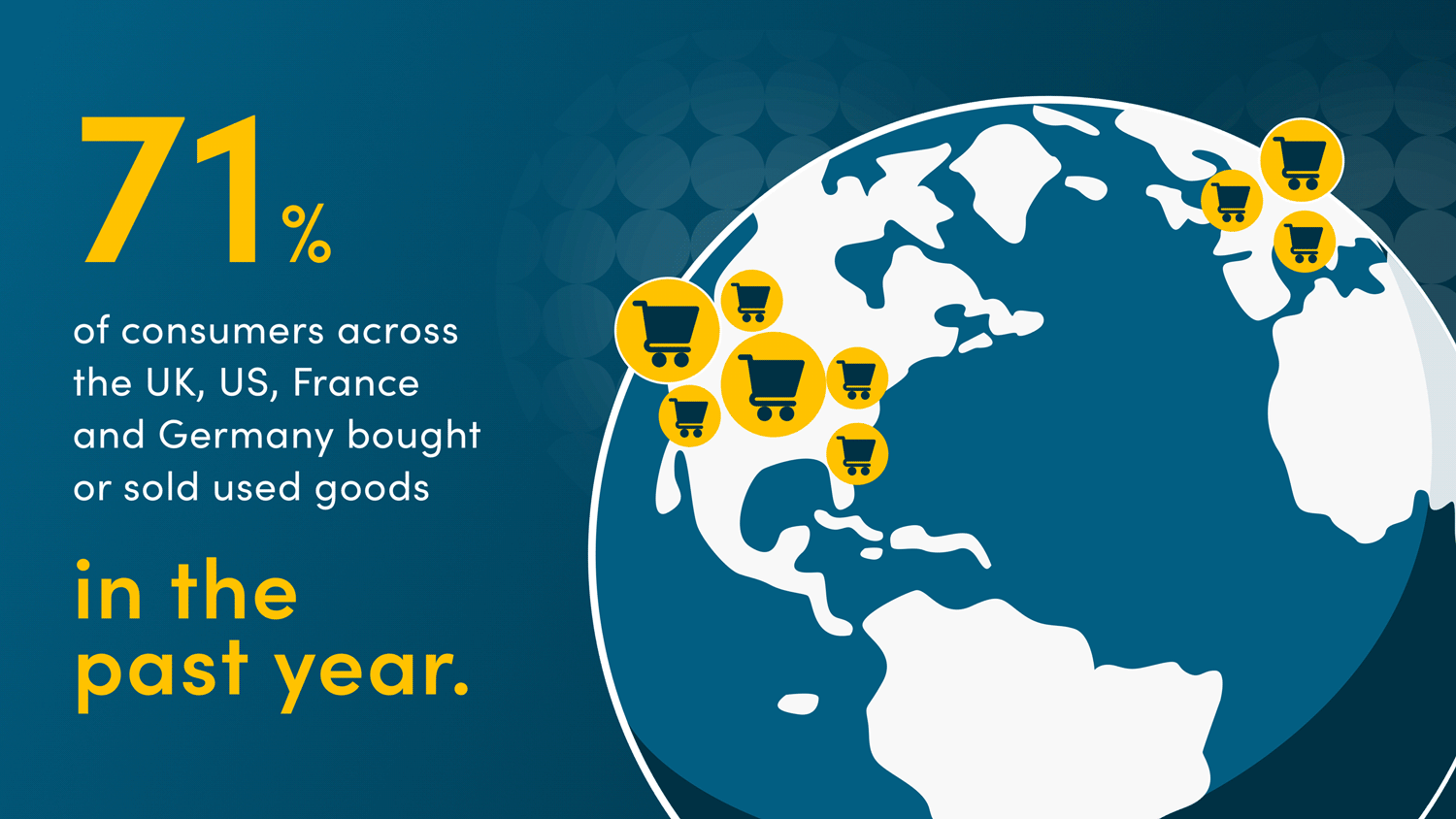
Research from MPB, the largest global platform to buy, sell and trade used photo and video gear, and Retail Economics reveals that nearly three-quarters of consumers (71%) across the UK, US, France and Germany have either bought or sold used goods in the past year, suggesting that the market for used goods—so-called ‘recommerce’—is continuing to grow strongly, as consumers choose to shop more sustainably and respond to rising living costs.
MPB and Retail Economics’ landmark report, Second-Hand, First Choice: The Psychology of Recommerce, finds that increasing numbers of consumers are buying and selling used products, representing a fundamental shift in consumer behaviour.
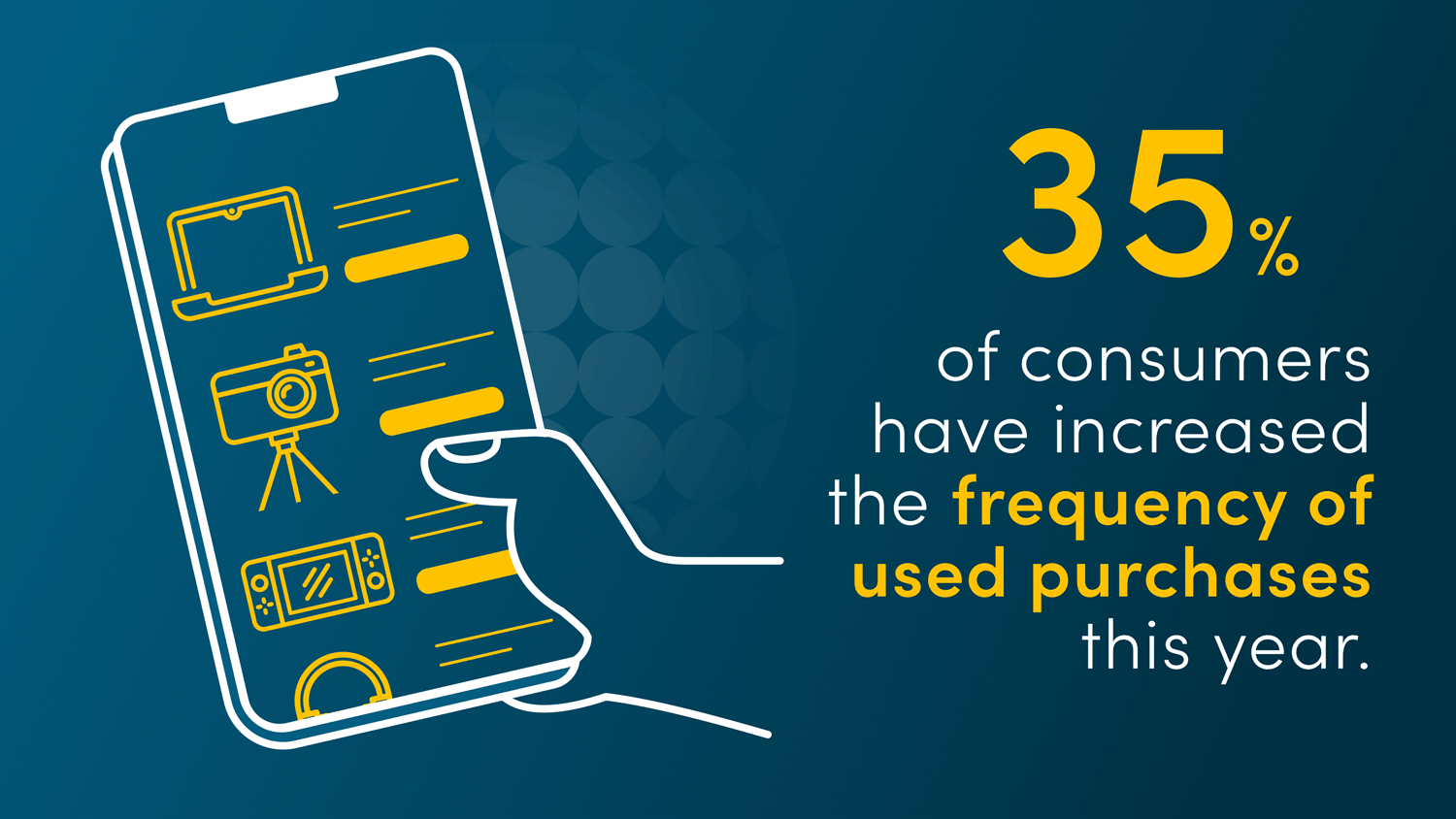
Recommerce becoming an embedded part of shopping behaviour
The report found that of the 71% of those that have bought or sold used in the last year, almost two in three (63%) make a purchase at least once a month, suggesting that recommerce is becoming an embedded part of normalised shopping behaviour.
What’s more, over a third (35%) of consumers surveyed have increased the frequency of their used purchases over 2023, compared to the previous year. One-fifthOne fifth (19%) of consumers overall consider this shift to be a permanent change. Contextually, in the UK, 9.4 million adults bought used more often in the last twelve months12 months and expect to continue this behaviour going forward.
Millennials were identified as key drivers behind the growth of recommerce, with four in five (84%) aged 30–44 participating in the used market, and 50% of them making at least one used purchase a month.
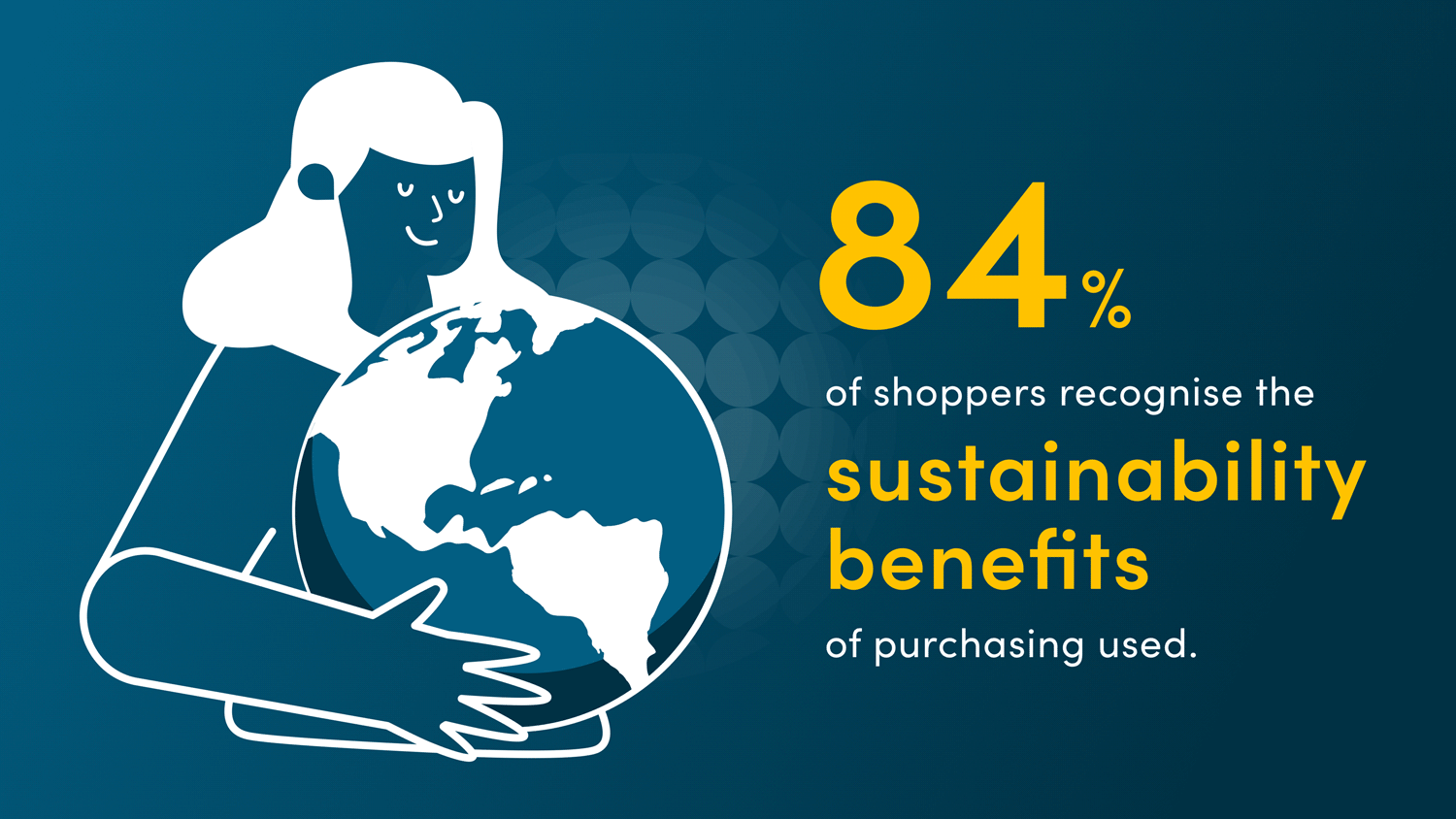
Cost savings and sustainability are the primary motivating factors
Over half of shoppers (52%) gave ‘financial reasons’, including cost savings and earning income, as the main driver of buying used, which is particularly telling in the context of cost-of-living concerns and economic uncertainty.
At the same time, the report finds that more affluent households are most likely to engage in recommerce, challenging the stereotype that the second-hand market primarily caters for shoppers with limited budgets. Those with an annual income of c.£80,000 or more, are twice as likely as low-income households to have bought and sold used items over the last twelve months12 months.
The vast majority of shoppers (84%) recognise the sustainability benefits of purchasing used, and three in five (59%) believe that buying used is the most sustainable way to shop.
When it comes to motivations for selling, earning income was cited as the main driver (34%). Sustainability concerns were found to be the next biggest motivating factor, as consumers increasingly look for viable solutions to reduce their environmental impact and waste.

Fashion remains the most popular category for recommerce, alongside Technology and Homeware
Across the four countries surveyed, £4 in every £10 spent on used goods is on Apparel or Fashion, making up a 37% share of all recommerce purchases in the UK, and 45% in the US.
Homewares and Furniture also claim a substantial share of the recommerce market worldwide, making up 30% in the UK specifically or nearly £2 billion annually.
The Technology sector (e.g. laptops, phones, cameras) also maintains a robust presence, capturing around one-fifth of recommerce market share. Separately, MPB research has found that there is over £1 trillion worth of unused tech in UK, EU and US homes, with 53% of British households having at least one unused camera, demonstrating the significant market opportunity in unused tech.
Online remains the ‘go-to’ channel for recommerce
Digital and specialised marketplaces are helping to drive the adoption of recommerce and make buying and selling used easier and more accessible. The report found that nine in ten (90%) respondents typically use online when purchasing used goods, while just over half (51%) indicated the same for bricks-and-mortar. This digital dominance is even starker when it comes to selling, with 93% of respondents turning to online channels to part with their items, compared to just 32% for offline (e.g. garage/car boot sales, charity shops).
78% of respondents chose online marketplaces as their go-to platform for buying used items, with 60% using generic platforms like eBay and 39% opting for specialist platforms like MPB or Vinterior.
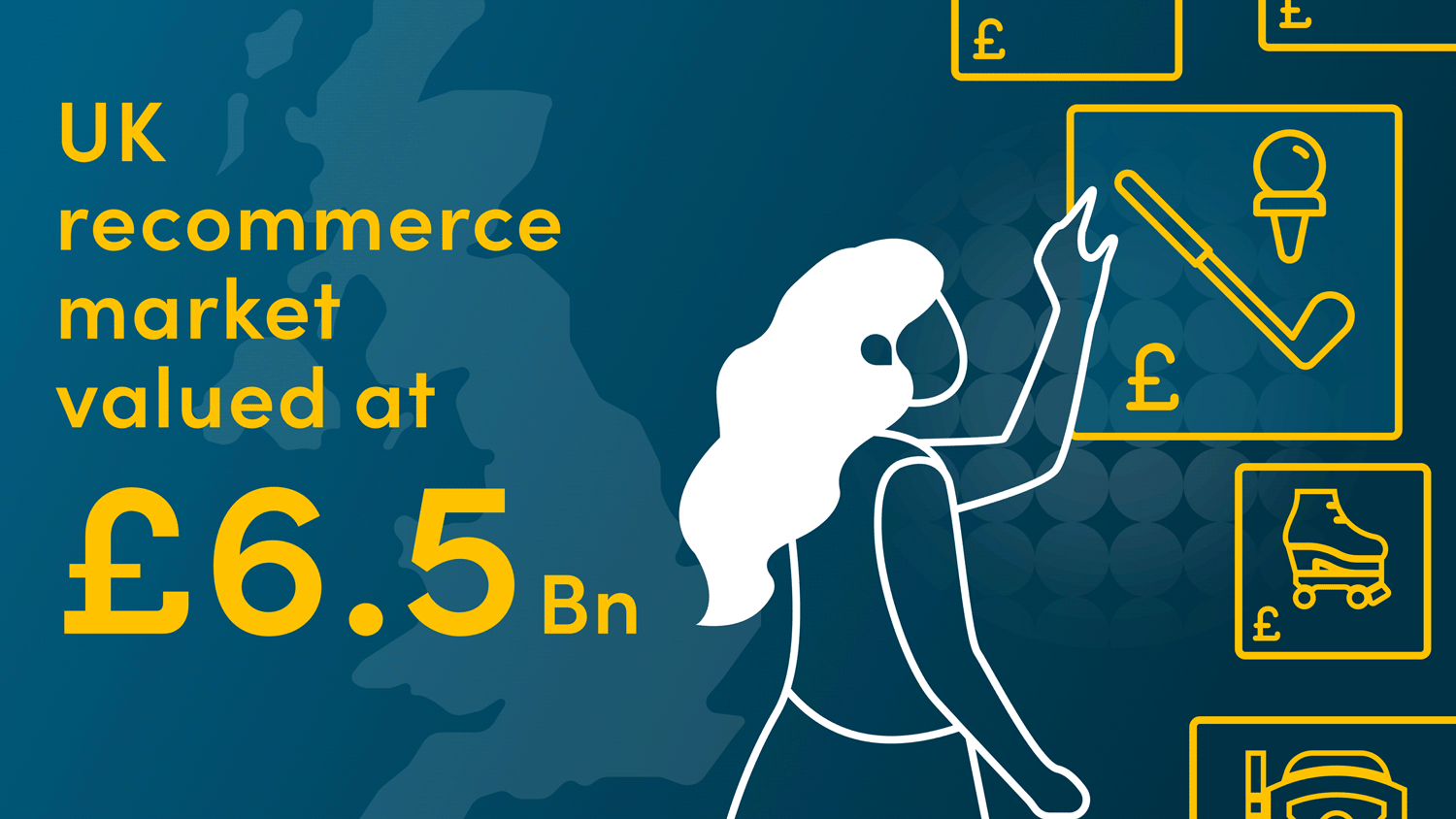
Recommerce market forecast to grow significantly
Based on current trends, the recommerce market is expected to see rapid growth in the next five years. The report forecasts growth of almost 80% by 2028 across the UK, US, France and Germany, representing a five-year CAGR of 12%. The value of the UK recommerce market currently stands at £6.5bn and is expected to nearly double over the next five years, to £12.4bn, significantly outgrowing the traditional retail market.
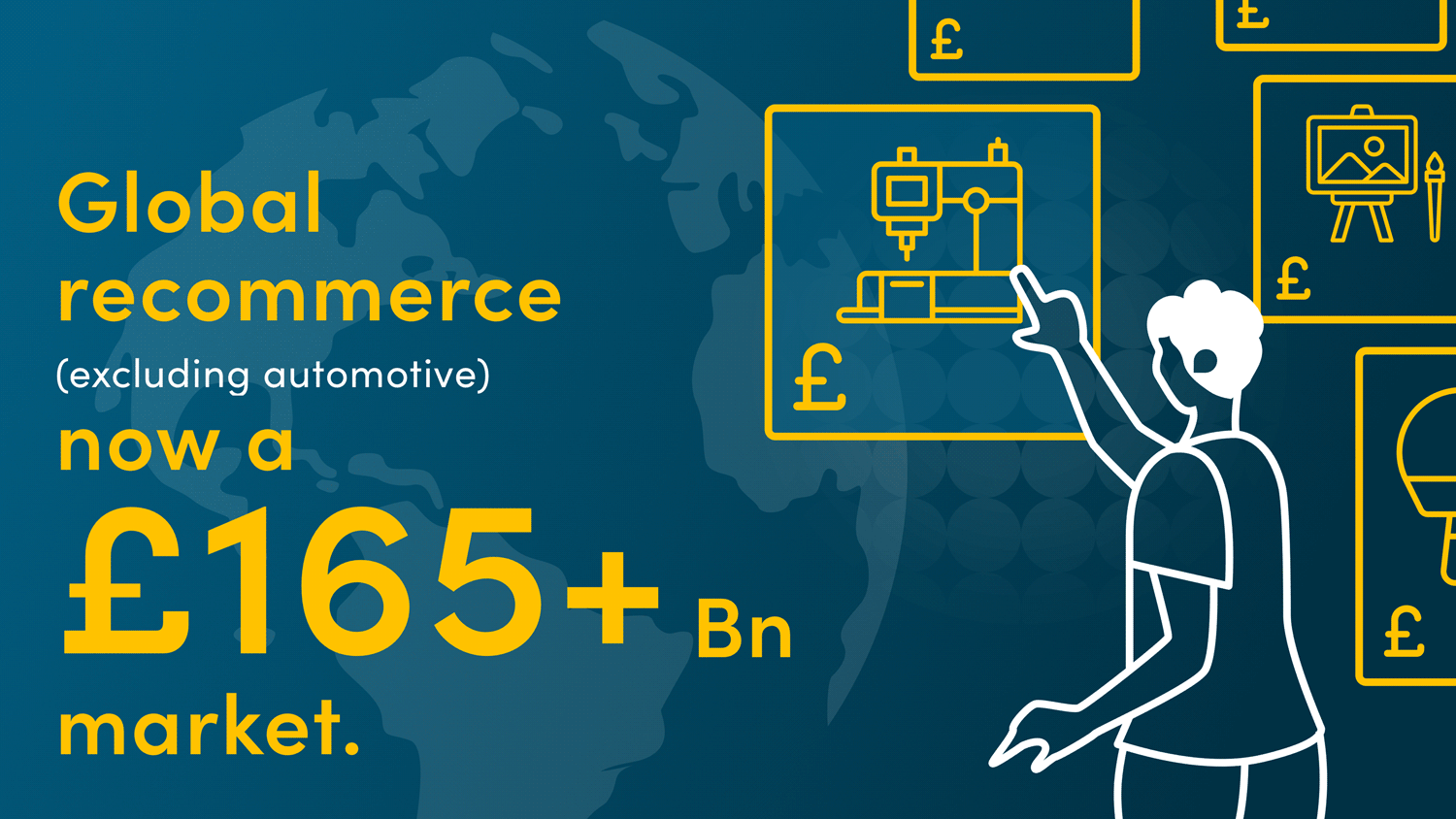
Commenting on the research, Matt Barker, CEO of MPB said:
“Given the environmental damage of overconsumption, alongside the rising pressure on household income, it is unsurprising that more of us across the globe are opting to buy and sell used products. This report demonstrates a fundamental shift in consumer behaviour and the nature of retail more generally, and this is just the beginning. With the recommerce market forecast to grow by almost 80% by 2028, it is clear that this is an industry with tremendous growth potential and one which echoes the values and preferences of many consumers.”
“There is a wealth of well-functioning products in re-circulation, and many items, such as photography and video equipment, have fantastic manufacture quality and are built to last. Used models cost on average a third less than the same model new, and the emergence of specialist online platforms ensures that buyers and sellers alike are entering into transactions that they can trust, with fair prices and quality assurance, in a way that has never been possible before.”
“Overall, buying and selling used is a win for your wallet and the planet alike, and putting more items into the circular economy is a win for the next owner too. Our findings indicate that we truly are undergoing a ‘Recommerce Revolution’ and retailers would do well to recognise the enormous opportunity within this space, as circular behaviour continues to catch on.”
Read the full report: Second-Hand, First Choice: The Psychology of Recommerce [PDF, 1.7MB]